Baristas, Brews & Breakthroughs: Coffee Conversation Behind the Counter
Discover the magic of Coffee Conversation between the barista and pure caffeinated soul. Real stories heard behind the counter—moments of resilience, hope, laughter, and quiet strength shared over simple cups of brew.
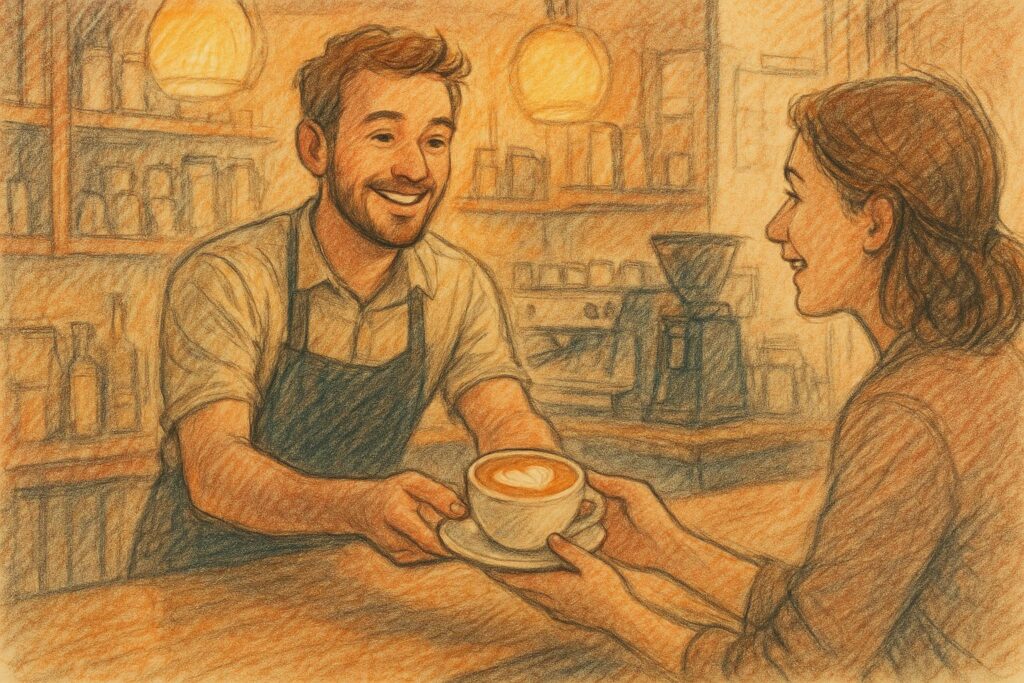
Why Behind-the-Counter Conversations Matter
When I began spending more mornings in cafés, I noticed something: the best stories didn’t come from the friends I sat with—they were whispered to me as I waited at the counter. In the hum of grinders and the hiss of steam, baristas bore witness to candid confessions, private victories, and small checkpoints of emotional growth.
Behind their worktops, baristas witness intimate, unfiltered Coffee Conversation—stories of joy, grief, discovery, and resilience. These are the moments that surprised me—two-way exchanges of life, warmth, and human connection, served with every cup. These conversations also teach us that a coffee shop isn’t just about caffeine—it’s a microcosm of humanity.
Story #1: The Architect Who Found Clarity
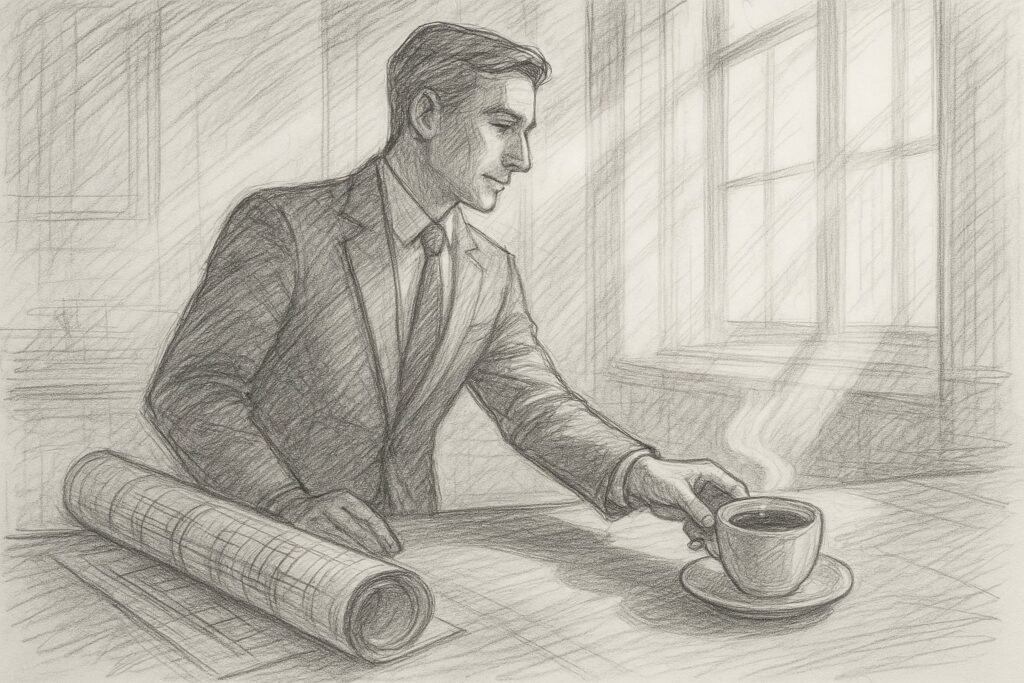
It was 7:45 AM on a chilly Tuesday. A young architect in a crisp suit stepped up to order a simple black coffee, pausing as though bracing himself. Then he confessed quietly to the barista, “I have to pitch a $5 million project today.” She didn’t flinch. She poured it carefully, slid the mug forward, and leaned in: “You’ve built this your whole career. Own it.”
He nodded, eyes bright. Two cappuccinos later, he returned triumphantly: “They said yes.”
She smiled quietly, then whispered, “That coffee did taste good, right?”
In that moment I realized—Coffee Conversation isn’t just talk. It’s emotional anchoring. That barista gave him faith that fit inside a small mug.
Takeaway: A barista’s comforting words—and a steady brew—can anchor courage. Coffee conversation isn’t only words; it’s care in action.
Story #2: The Nurse’s Exhaustion, Met With Empathy
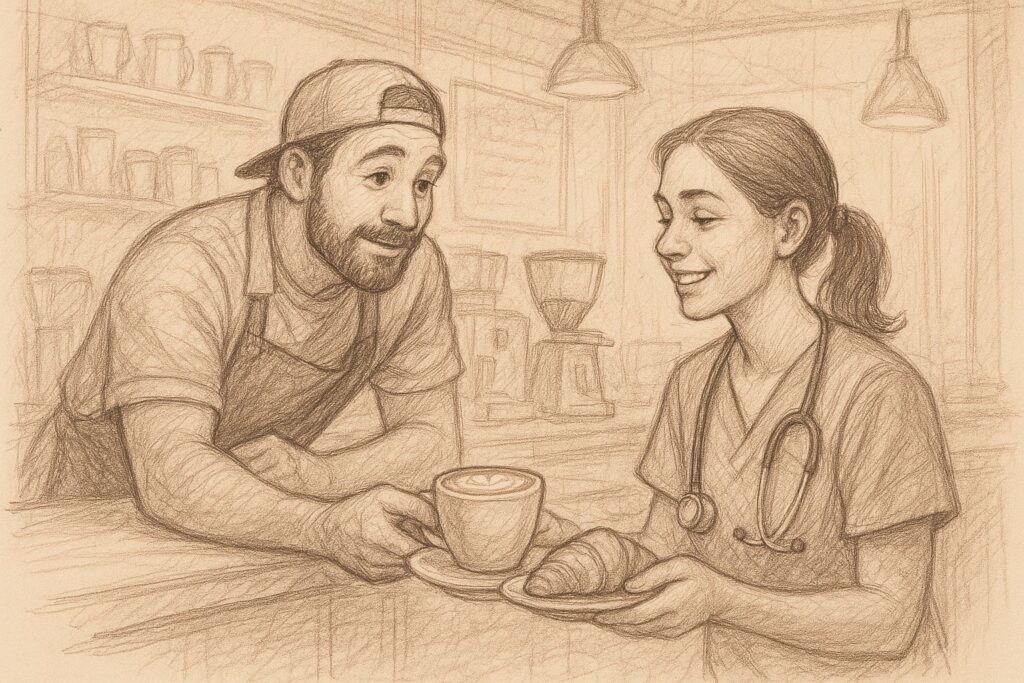
By 4 PM on a Friday, the exhaustion in the café was palpable. A nurse in scrubs shuffled in, heavy-eyed. She looked like she carried a week’s worth of struggle. She ordered a double-shot latte—unstated exhaustion poured into her tone. The barista prepared her drink, then added a free pastry on the side. Without grand words, she said softly, “Looks like you’ve earned this.”
The nurse paused, tears brimming: “No one’s said that to me today.”
She stayed, stirring coffee slowly. Silence was enough.
I realized then: simple acts of empathy—no strings attached—can be more restorative than grand gestures. That latte told her: “We see you. You matter.” And sometimes, that is enough healing.
Takeaway: Sometimes a kind word over the counter is more restorative than any drink. Coffee conversation makes human emotional cracks visible—and holds them.
Story #3: The Mom Reconnecting at 10 AM

Weekend rush: I noticed a mom ordering two cappuccinos. Barista crafted heart art in each foam. She smiled, and said, “You always make it perfect.” The barista answered, “You deserve a warm hug in a mug— a perfect hot coffee.”
They shared a short laugh. She stayed to chat, just five minutes—then left lighter.
Those five minutes between counter and table carried more than caffeine—they carried grace, remembrance, and permission for slow delight—even among weekly chaos.
Takeaway: Small ritual-based affirmations with Coffee can rebuild joy amid busy parenting. Coffee conversation can be a tiny act of grace.
Story #4: The Young Writer with an Overheated Laptop—and Mind
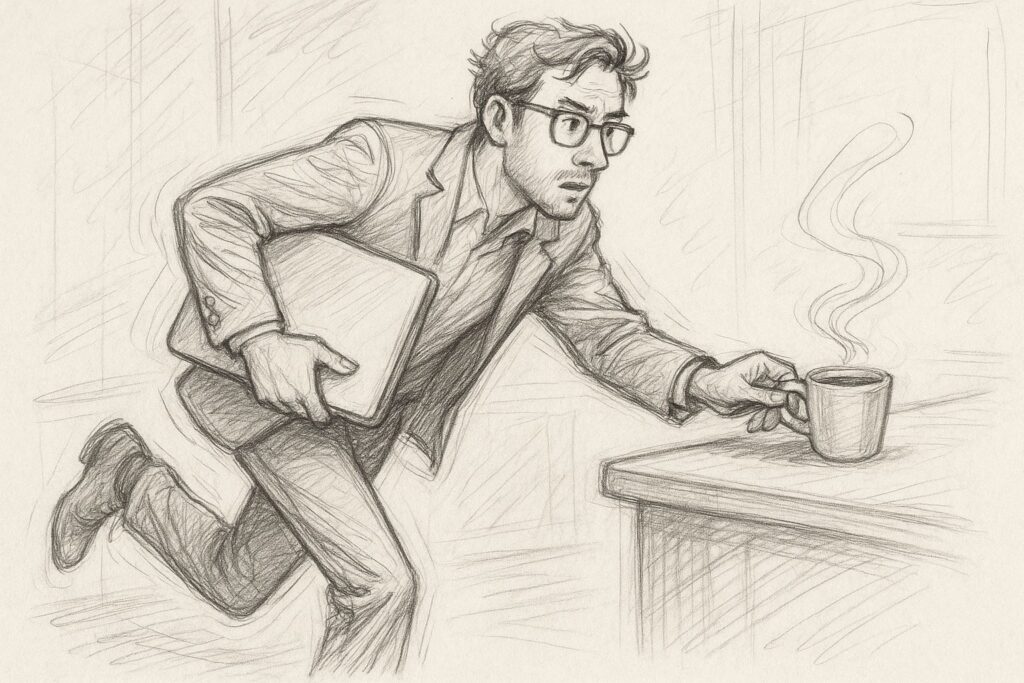
Midweek, a writer with a crashed laptop and desperate eyes walked in. It read like a meltdown waiting to happen. He said, “I have zero seconds till deadline.”
The barista slid an espresso across: “Fuel for the fire.”
He smiled, cradling the cup. He typed a few more lines, lens reflection focused again. Before leaving he said, “Thanks for saving my day.”
She answered simply, “That’s why we’re here.”
I realized then: Coffee Conversation isn’t always spoken. Sometimes it’s the right drink, in the right moment, with a presence that implies, “I’m very human too.”
Takeaway: Brewing isn’t just coffee—it can be emotional support. A barista’s empathy, spoken through a cup, can revive someone’s will.
What These Moments Tell Us
These four snapshots—from triumph to fatigue, from parenthood to artistic struggle—showcase how barista-fueled conversations are woven into our emotional fabric:
- Coffee with intention= emotional support. Even a price tag’s worth of drink can offer priceless relief.
-
Ritual meets empathy: A latte art heart says “you matter,” more than any sign on a wall.
-
Café culture thrives on connection—not just extraction.
-
Emotional intelligence in every pour: Some days baristas gauge a word, a look, or a silence—and respond with warmth.
-
Shared humanity: Cups and counters become safe spaces. We belong—even briefly.
- Vulnerability is a daily choice—and shared acknowledgment makes it less lonely.
What Baristas Teach Us About Connection
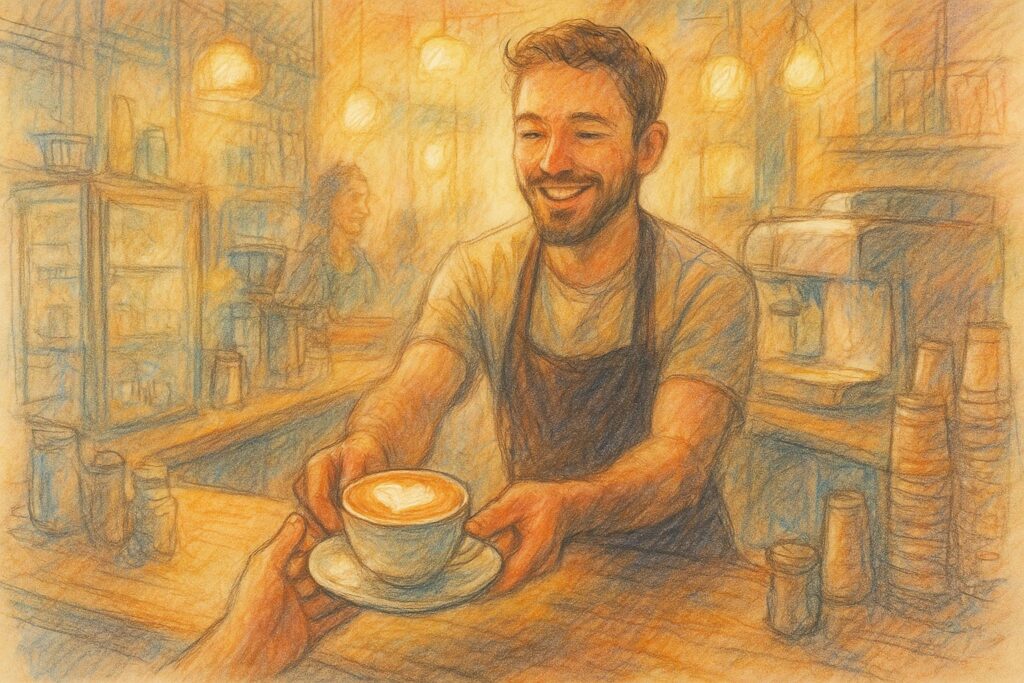
| Insight | What It Means for Daily Life |
|---|---|
| Listen beyond orders | People often share more than their drink preference |
| Small gestures matter | An extra cookie, eye contact, or “take your time”—means more than grand statements |
| Pause before pour | That moment of pause can signal care is in progress |
| Presence > perfection | The barista doesn’t need to fix feelings—just acknowledge them |
Café culture isn’t polish—it’s soul.
How to Foster Your Own Coffee Conversations
- Learn a barista’s name; greet them by it.
- Ask “How’s your shift today?”—you may light a spark.
- Share something small: a note of gratitude or a surprise compliment.
- If you sense emotional space, offer generosity. A cup, a smile, a short conversation.
- Jot your own brief reflections in a journal: “Today I gave kindness and received trust”—it builds awareness.
From customer to barista and back, these moments create community—in caffeine and caring. Conversations begin with curiosity and grow with care.
Final Sip

Coffee Conversation is not just a casual chat—it’s a vessel of humanity, tucked into nuggets of empathy poured across a counter.
From architects anchored, nurses comforted, parents recharged, to writers revived, these stories remind me: the best brew is more than flavor—it’s empathy in a cup.
So next time you order, consider a small pause. Make eye contact. Offer a soft gesture. Coffee is warm—make your connection warmer. Because in these moments, we discover: cafés aren’t just about caffeine—they are crucibles of hope, comfort, and genuine human spark.

Pingback: Coffee Conversations: 3 Powerful Stories From Total Strangers - Jannes Punita